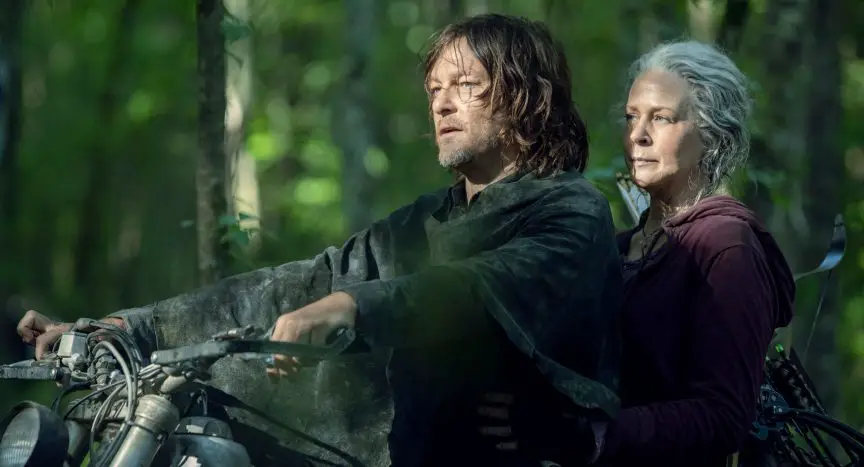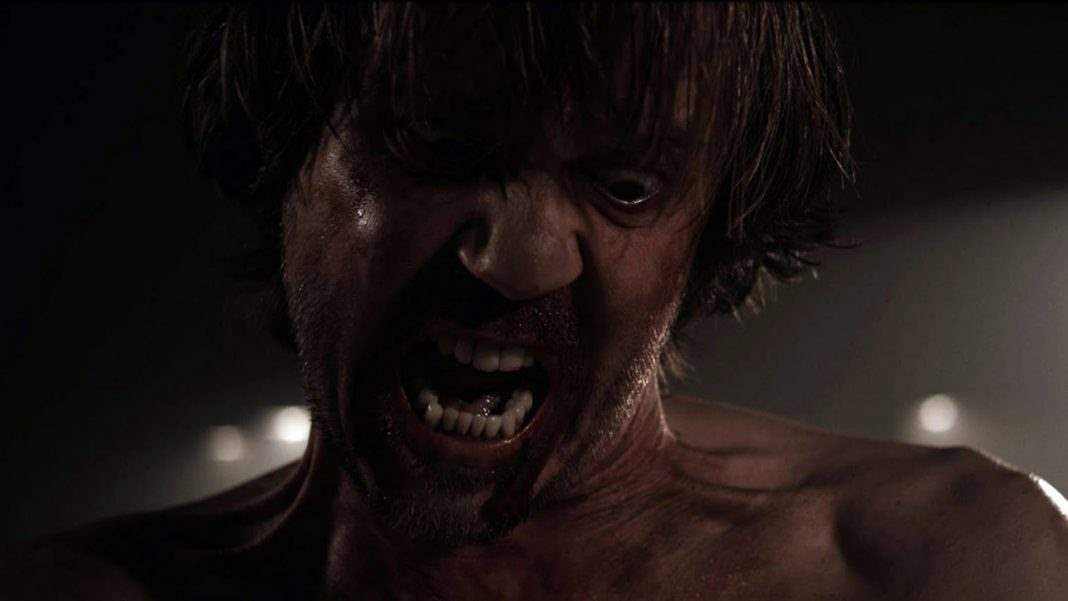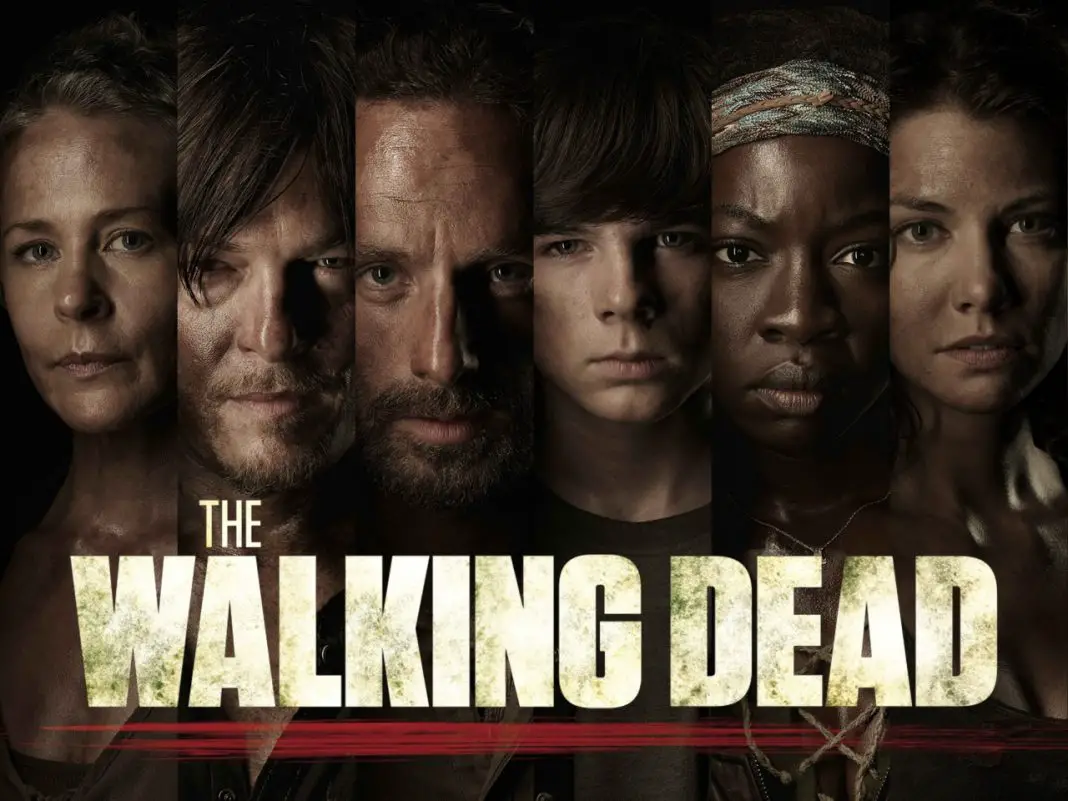AMC is introducing a few new characters to The Walking Dead in Season ten, including Thora Birch’s Gamma, and behind the scenes they are also bringing on new creatives, one of them being composer Sam Ewing. Ewing has been added as an official co-composer alongside veteran Bear McCreary. Ewing is no stranger to The Walking Dead, he has been a fan of the show since episode one. Bringing that knowledge and understanding of the characters has been beneficial, as the Season ten musical approach has been that of a throwback to earlier seasons, with Ewing and Bear devolving into its organic and acoustic roots. Below, Ewing goes into more detail about bringing some fresh musical meat into the zombie apocalypse.
Also See: How The Walking Dead Changed the Landscape of Horror Television (Whether You Like it or Not)
Wicked Horror: The music for the premiere episode opens pretty intensely with the beach battle. Did you stay in chronological scene order and score this first when beginning Season ten or did you get warmed up with other scenes before this one? If first, is it hard to jump in immediately with a scene like that?
Sam Ewing: I often do like to compose chronologically. I find that if I experience the story with the characters and as it develops, I will develop the music in a more effective way. Contrarily, if I start with a later, more climactic scene first and then finish the rest of the score, I might look back and wish I could have scored that scene with the ripe perspective. Alas, there’s not always time for such luxuries. Many times the opposite is necessary for approval reasons. In this case Bear McCreary and I scored the rest of this episode first. I think that opening battle is such a standalone set piece that it just needed be fun and not necessarily tie into the rest of the episode, thematically. So once we knocked out the rest, I went to that first cue and took a big, fun whack at it (I wrote in the 7/8 odd time signature. Even though the harmonies and parts are all fun and bouncy, it’s this odd meter that keeps you on your toes, much like the training sequence did for the characters!)
Wicked Horror: You are scoring Season ten with Bear McCreary. Was there any talk about doing anything different, musically, for the main title sequence to celebrate Season ten?
Sam Ewing: Not at all, actually! I think when we got new visuals in Season nine, the main title needed a bit of an editorial job to get it to line up. But there has been zero talk about changing it – it works so well and it’s so iconic! Something we’re making a little bit more of an effort of this season is using those main title prelap strings more often. So before the scene is over you hear that creeping, agitated riff sneak in. It gets people pumped up. That being said, we did score the Comic-Con trailer this year and made a conscious effort to inject that main title riff everywhere to make it feel like “this is season ten, baby!”
Wicked Horror: What do you think is key, musically, to building suspense on the show? For instance, when they are hunting zombies in the woods?
Sam Ewing: I think silence, keeping things small, and leaving room to build are all key for building suspense. Take the scene in 1001 for example, when Aaron, Michonne, Magna and a few others in the woods investigating the bodies and the Whisperers “hide.” This scene was all about keeping things really small, preserving the amount of low end and bass used, and each corner that is turned, there’s a little twist of the screw. Something in the music shifts, gets more tense, some bass enters on a revelation. And best of all, when there is silence, it basically doesn’t get any more tense. Music has a bigger impact the longer the stretch of silence goes. Even if it’s just one second of silence, it has a huge effect.
Wicked Horror: In episode one when Carol and Daryl are talking about running away together on the cliff, for a minute there is a very calming type of melody in the background. Almost like a love theme. Which do you find is more challenging to score for the show, those calming tones or the intense fighting tracks?
Sam Ewing: I loved scoring that scene! We initially tried something even more heartfelt, but show runner Angela Kang, Bear and I ended up walking it back a little because even though it’s an unusually “dreamy” moment for them, these characters don’t need a ton of musical support. Sugar isn’t needed on top. For all of these reasons, I actually found this to be a little more challenging than say the opening action sequence. There isn’t as much “music,” per se, but a more delicate touch is needed and it needs to be approached very deliberately with the characters in mind. There’s no hiding behind the action and the SFX!
Wicked Horror: In the beginning of episode three, the music intensifies as the hours tick by as more and more zombies approach. Did you start off knowing what decimal you wanted to end at? Or did that happen the more you worked on the sequence?
Sam Ewing: When Angela, Bear and I discussed this scene initially, one of Bear’s ideas which we all liked was to speed up the tempo as the sequence goes, so that the tension mounts with the number of zombies. So conceptually, we knew what we wanted to do. The technical part of it was cracking open Cubase (my digital audio workstation) and carefully mapping out each hit point so that the beats landed evenly on those big title cards, while simultaneously speeding up throughout and ending in the right place. So it’s this technical and creative challenge to get the music to do all of that and still feel natural. It’s like timing an accelerating car (the music) and a steadily speeding big rig (the main title heading towards us) driving perpendicularly towards the same point, to line up and have the car drive right under the big rig, but also hit a bunch of randomly spaced cones on the way. It’s a mind bender. But when it finally lined up, it was like BOOM! That’s it! Time to record some music!
Wicked Horror: In episode three when Carol thinks she is seeing her son, and then she wakes up as the knife is coming at her. What did you use to create that intense sound? The one that almost sounded like an alarm.
Sam Ewing: Thank you, I hope that scared you. I believe it was three sounds layered together. First layer was an intense, blood curdling scream, to give it a human element (I have a library of these laying around, naturally). Second was a screaming, distorted synth signal coming out of my Behringer Model D analog synthesizer to give it the blaring alarm sound you’ve pointed out, and finally there was a really fast drum roll to give it a brief but urgent feeling. Each layer was processed and distorted heavily and I don’t think there’s any way to know that by listening once, but I think it came together to elevate the scare!
Wicked Horror: Are you scoring the end of Season ten now? How has the score progressed from Season ten episode one?
Sam Ewing: We’re basically right in the middle of the season now. The music has evolved thematically and basically gotten darker more tense. Things are heating up and characters are wondering if they can trust each other. So the tension is continually mounting, and we have little moments of peace, which seem to lessen all the time, and often seem to ultimately be shattered in a very traditional Walking Dead fashion. That’s what’s fun about this show!
Wicked Horror: Are there any new characters in season ten that you have specifically enjoyed creating themes for?
Sam Ewing: Speaking of little moments of peace, I’ve enjoyed creating with Bear a folky little family theme for Michonne, Judith and R.J. It’s rare we get to lean into a beautiful, sparse, major key theme, so it’s been nice and slightly unusual. I’ve also enjoyed developing the Whisperers theme a bit. In 1002, we get some fresh backstory and our goal was to interweave their theme we established in Season nine, but present it in a fresh and exciting way. By the end of the episode, the goal is to have the theme heard in a more vulnerable and emotional light, while giving just enough shade of darkness to remind you these are the villains coming together. I hope we delivered that!
Learn more about composer Sam Ewing here.






